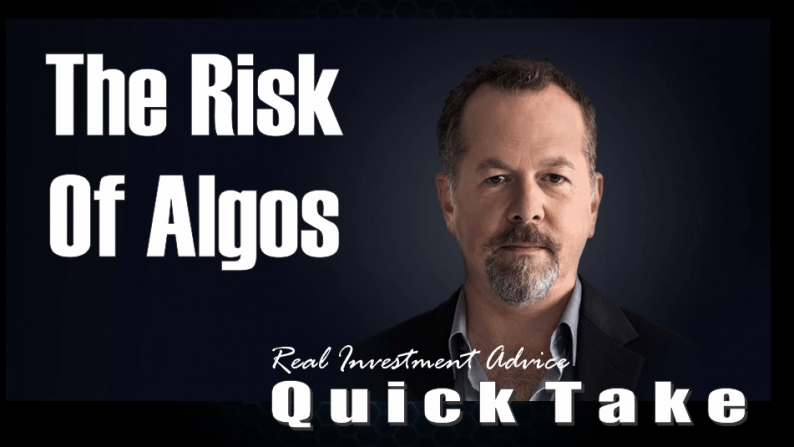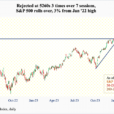
“Mike ‘Wags’ Wagner: ‘You studied the Flash Crash of 2010 and you know that Quant is another word for wild f***ing guess with math.’
Taylor Mason: ‘Quant is another word for systemized ordered thinking represented in an algorithmic approach to trading.’
Mike ‘Wags’ Wagner: ‘Just remember Billy Beane never won a World Series .’ – Billions, A Generation Too Late
My friend Doug Kass made a great point on Wednesday this week:
“General trading activity is now dominated by passive strategies (ETFs) and quant strategies and products (risk parity, volatility trending, etc.).
Active managers (especially of a hedge fund kind) are going the way of dodo birds – they are an endangered species. Failing hedge funds like Bill Ackman’s Pershing Square is becoming more the rule than the exception – and in a lower return market backdrop (accompanied by lower interest rates), the trend from active to passive managers will likely continue and may even accelerate this year.”
He’s right, and there is a huge risk to individual investors embedded in that statement. As JPMorgan noted previously:
“Quantitative investing based on computer formulas and trading by machines directly are leaving the traditional stock picker in the dust and now dominating the equity markets.
While fundamental narratives explaining the price action abound, the majority of equity investors today don’t buy or sell stocks based on stock specific fundamentals. Fundamental discretionary traders’ account for only about 10 percent of trading volume in stocks. Passive and quantitative investing accounts for about 60 percent, more than double the share a decade ago.”
As long as the algorithms are all trading in a positive direction, there is little to worry about. But the risk happens when something breaks. With derivatives, quantitative fund flows, central bank policy and political developments all contributing to low market volatility, the reversal of any of those dynamics will be problematic.












Leave A Comment